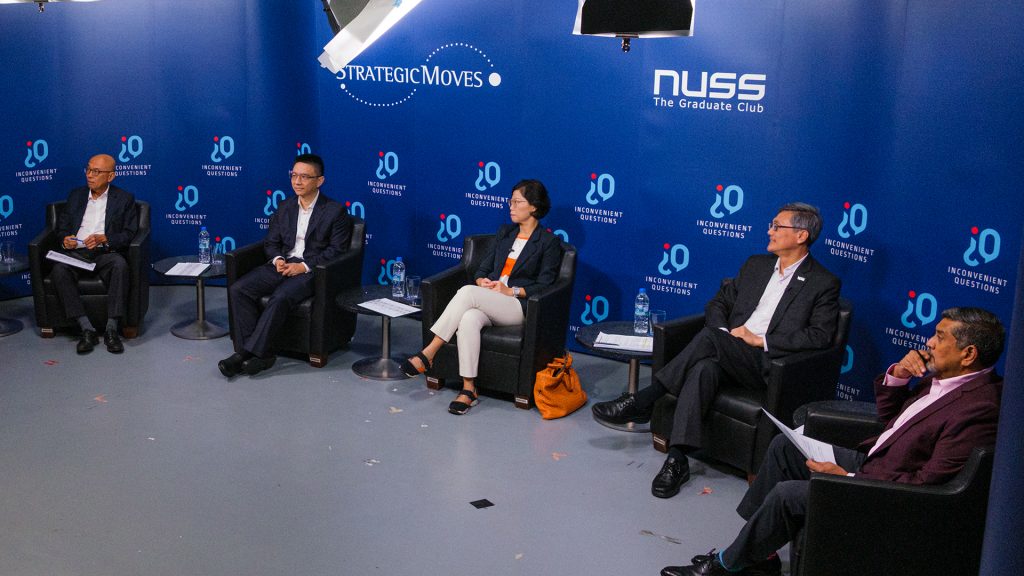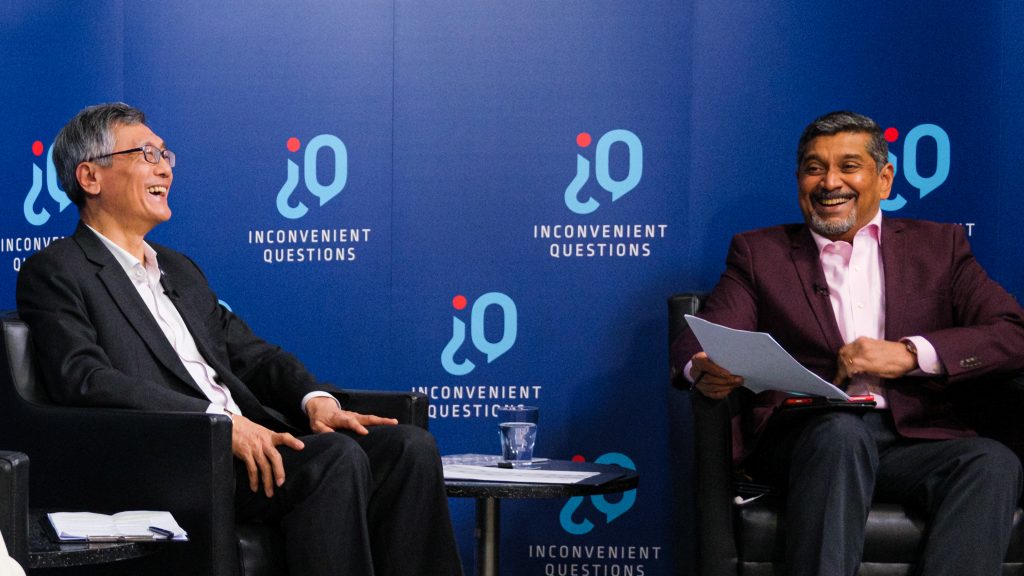The changing face of learning
December 5, 2020

In 10 years’ time, a third of today’s jobs will disappear. This possibility, as well as the presence of increasingly complex problems, from global pandemics to climate change, necessitates a shift in the way we develop our students, said panellists at a discussion on the future of university education.
At the Inconvenient Questions (IQ) discussion on 3 Dec, NUS President Professor Tan Eng Chye shared that it is important for universities to create opportunities for their graduates to thrive.
One increasingly important node in this is interdisciplinarity.
“Modern day problems are very complex, and usually approaches in one single discipline will not be enough to solve the problem,” said Prof Tan.
“Interdisciplinarity is founded on depth in two or more disciplines. More importantly, it is the connections between the disciplines and how you integrate different approaches from both disciplines to arrive at the final solution. If we do interdisciplinarity well enough, that promotes agility of the mind, which will better prepare us for even more complex problems in life and future.”
Affirming the value of an interdisciplinary education, Mr Ye Gang, the Chief Operating Officer of Sea Group, related how a bold decision to study a diverse range of subjects when he was a Master’s student, including those he was weak at, had paid off for him. “It really opened up my mind to the world,” he shared.

Keeping pace with society
While there are many encouraging changes afoot in our education system, the key question remains if society – including employers, students and parents, adult learners – is ready to embrace a more holistic education and different definitions of success.
In posing this question, moderator Mr Viswa Sadisavan, Chief Executive Officer of Strategic Moves and a former Nominated Member of Parliament, shared that the move towards interdisciplinarity has to be embraced by the entire ecosystem, with students being exposed to it at the primary, secondary, junior college and polytechnic levels.
“It’s a continuum,” he said. “At various stages, you need to prepare people for what you can expect to have in the university.”
Prof Tan shared that NUS’ focus on interdisciplinarity will also involve “working closely with upstream institutions like the junior colleges, polytechnics and secondary schools and polytechnics, to sensitise our teachers to interdisciplinarity, so that they can build it into their assessments, their curriculum, their teaching.”
NUS will also interface closely with industry practitioners as they are most aware of the practical real-world problems which, Prof Tan pointed out, will animate experiential learning and infuse academic knowledge with practicality.
Learning for life
Another key area of focus in equipping people for the future is lifelong learning.
The average career now lasts some 45 to 50 years, Prof Tan noted. As such, lifelong education is critical, and universities can play a vital part in this by being recharging points for adult learners.
“You need to constantly unlearn and relearn. Lifelong learning is really a mental attitude, but it also needs to be facilitated by a very broad intellectual foundation,” he said, adding that lifelong learning requires curiosity of the mind and the will to learn.
Similarly, Ms Aw Kah Peng, Chairperson of Shell Companies in Singapore, shared that while there is now a wealth of avenues that encourage learning, the individual will need to have a learner’s mindset to make the most of these opportunities – “curiosity, a certain openness of mind to new ideas, a sense of confidence”.
Mr Han Fook Kwang, Editor-at-Large at The Straits Times, agreed that it is up to the individual to grasp the opportunities to learn. Some risks may need to be taken.
He observed that the way of life in Singapore is generally more structured than in other countries, with trajectories for education and career firmly set in place.
“When you have a very structured system like in Singapore, you have to make a conscious effort to get out of the structure if you want to do so – to experience failure, try out new things. You have to make the conscious decision and have the courage and commitment to do it,” he said.
The IQ series is a collaboration between the National University of Singapore Society (NUSS) and Strategic Moves.
This story first appeared in NUSnews on 4 December 2020.

